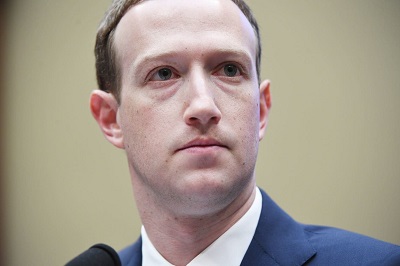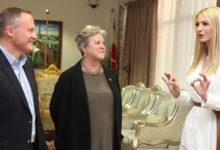
Facebook is under fire in Africa for undermining democracy, with critics saying the social media giant has allowed its platform to be weaponised for co-ordinated misinformation campaigns.
The role of false news has taken centre stage in every single one of the continent’s eight national polls this year – and last week Facebook said an Israel political consultancy was behind much of it.
It banned Archimedes Group, which it said was responsible for a network of those masquerading as African nationals, and removed 265 Facebook and Instagram pages and groups involved in “co-ordinated inauthentic behaviour” mainly targeting Nigeria, Senegal, Togo, Angola, Niger and Tunisia.
Nanjira Sambuli, from the World Wide Web Foundation, says it has taken Facebook too long to pay attention to this problem in developing countries.
“Democracies are at risk on this continent, and unfortunately, social media platforms are fast becoming the sites of aggravation,” she told the BBC.
Some feel the continent’s weak regulations on privacy and data protection have meant Africa has been used as a “guinea pig” for privacy violations.
“We’re a training ground. Once it works in Africa, they replicate that and they use it across other geographies,” Cameroonian tech entrepreneur Rebecca Enonchong told the BBC.
She cites the Cambridge Analytica scandal as a prime example of the pass Facebook gets in Africa for the same wrongdoing for which Western regulators were less forgiving.
In 2018, Facebook and British data analytics firm Cambridge Analytica were at the centre of a dispute over the harvesting and use of personal data of more than 230 million users, using it to try and alter how people voted in multiple countries including Nigeria and Kenya.
As a result of the scandal, Cambridge Analytica closed operations and the US Senate summoned Facebook CEO Mark Zuckerberg to testify before Congress.
In reaction to last week’s Facebook announcement, Congolese blogger Simeon Nkola Matamba tweeted: “The question should rather be why does Facebook feel comfortable doing in Africa what they’d be less likely to do in other parts of the world? As much as Facebook must comply with ethics, our institutions and regulators must up their game (if they have any) and protect people’s rights.”
Those behind the Israeli-linked Facebook pages spent about $812,000 (£641,000) on the platform between December 2012 and April 2019 and gained a total of 2.8 million followers. –BBC






